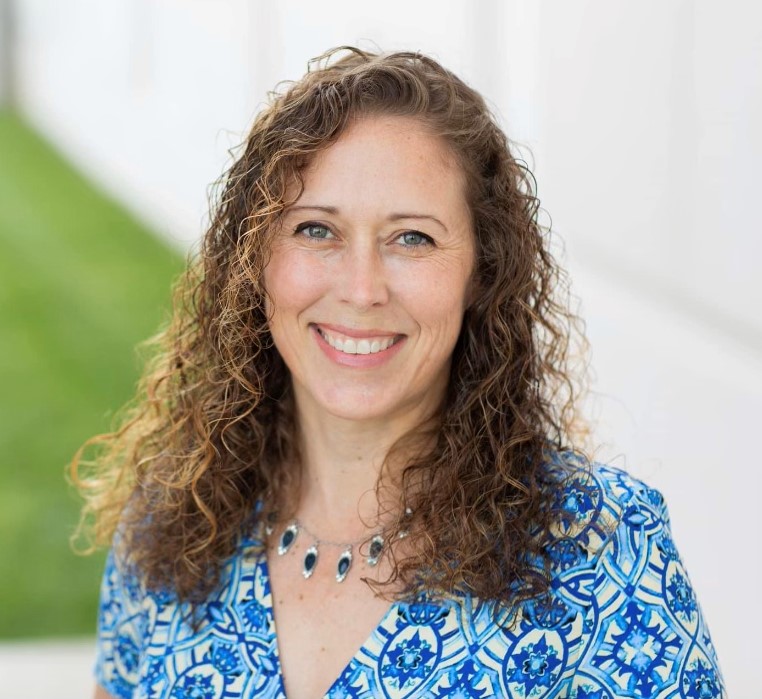Second location is one of at least 10 new programs emerging in U.S.
 Listen to this story.
Listen to this story.
Dr. Kim Carney

Facebook screenshot
Dr. Kim Carney is founding dean of the Lincoln Memorial University veterinary school in Orange Park, Florida.
The nation's largest veterinary program will get even bigger with plans to open a second location in Orange Park, Florida, near Jacksonville.
The new program at Lincoln Memorial University, which has a main campus in Harrogate, Tennessee, is the latest in a lineup of budding schools with seemingly no end in sight. Each is responding to a perception that the U.S. is short on veterinary care and is eager to fill the demand.
The new program in Florida is slated to open with 150 seats per class. In a press release issued Friday, LMU cited a Mars Veterinary Health study projecting the need for "another 41,000 veterinarians by 2030."
LMU is in a crowded field of institutions with veterinary schools in the works: At least 10 new programs are on the horizon. If they all become established this decade, the growth will surpass that of the 1970s, when eight veterinary programs were birthed.
Right now, the U.S. has 33 veterinary programs where 15,157 students enrolled for the 2022-23 academic year, according to Association of American Veterinary Medical Colleges data.
A private, nonprofit institution, LMU is relatively new to the veterinary sphere. An initial class of about 90 students enrolled in 2014, and the program expanded to 125 first-year seats. In January, LMU added a second class of 100 seats to nearly double LMU's output. In all, approximately 225 veterinary students a year will complete their four-year studies on the Tennessee campus.
LMU did not indicate when its new location will open in Florida. Orange Park, where LMU said it has purchased 12 acres and "is exploring moving several of its successful academic programs to the location," is 60 miles from Gainesville, home of the University of Florida College of Veterinary Medicine, which opened in 1976. Dr. Kim Carney, a longtime professor and administrator at LMU in Tennessee, is the new program's founding dean, according to a press release.
As with every new U.S. veterinary program that hopes to be accredited by the American Veterinary Medical Association Council on Education, the institution must first obtain a letter of reasonable assurance, an initial step in the accreditation process.
Tempered enthusiasm
The rapid expansion of U.S. veterinary education raises concerns among some leaders in the profession about implications for the workforce.
Dr. Lori Teller, outgoing president of the AVMA, is one of them. In a recent commentary published on the AVMA website, she expressed concern that pandemic-related stressors and high demands for services are tapering, potentially leaving many new graduates entering a weakening job market.
"AVMA data do not support the projected companion animal veterinarian shortage that has been reported," she writes.
Between 2022 and 2030, she says, the number of companion animal practitioners in the U.S. will rise from 80,000 to more than 98,000.
"The anticipated 20% increase in companion animal practitioners reflects historical increases in class sizes, as well as the three new veterinary schools graduating their first classes in 2023, 2024, and 2025. This should help address the capacity crunch being felt across the profession," Teller writes, adding:
"What that 20% projected increase doesn't include, however, are seats being added to existing programs that are substantively beyond historical increases. And, looking even further ahead, there are 10 new veterinary schools that are in various stages of development."
On the horizon
Among those 10 programs is the Universidad Ana G. Méndez, the only veterinary school in Puerto Rico, which opened in Gurabo in 2021 and now seeks a letter of reasonable assurance from the AVMA COE, which is scheduled to evaluate the program in late August.
Other programs are planned at:
- Arkansas State University in Jonesboro, Arkansas
- Chamberlain University in Stockbridge, Georgia
- Clemson University in Clemson, South Carolina
- Lyon College in Batesville, Arkansas
- Rocky Vista University in Billings, Montana
- Rowan University in Rowan, New Jersey
- University of Maryland Eastern Shore in Princess Anne, Maryland
- Utah State University in Logan, Utah
Of the 10 proposed programs, six are at state universities. The rest are at private institutions. Lyon is a private liberal arts college affiliated with the Presbyterian Church that has fewer than 700 students, and Chamberlain is owned by Adtalem Global Education, a company that operates Ross University School of Veterinary Medicine, a for-profit school on the Caribbean island of St. Kitts.
Adtalem has not publicly indicated whether it plans to model Chamberlain after Ross. Like LMU in Tennessee, Ross enrolls multiple classes each year, graduating more than 400 veterinary students annually. Most of them are Americans who return to the U.S. to practice.
(Ross, one of the more expensive veterinary institutions catering to American students, was one of more than 150 schools named in Sweet v. Cardona, a class-action lawsuit about predatory lending and misleading behavior toward federal loan borrowers that resulted last year in a $6 billion settlement. Some 1,200 current and former Ross veterinary students have applied for relief, according to a U.S. Department of Education response to a VIN News Service freedom of information request.)
Within the U.S., LMU is the second-most expensive veterinary program, charging $55,574 a year in tuition and fees. The most expensive is Midwestern University in Arizona, with tuition and fees of $71,845.
Considering the hefty student loan burden of many new graduates, Teller cautioned against making "hasty, knee-jerk decisions" about how many veterinarians the workforce needs and can support.
"We are seeing the number of clinic visits, new patients, and new clients returning to pre-pandemic levels," she said in the commentary. "This suggests a normalization of demand. With this in mind, we need to be careful that proposed 'fixes' don't derail the future health of our profession. We know there's a short-term problem, but we want the right long-term solutions."